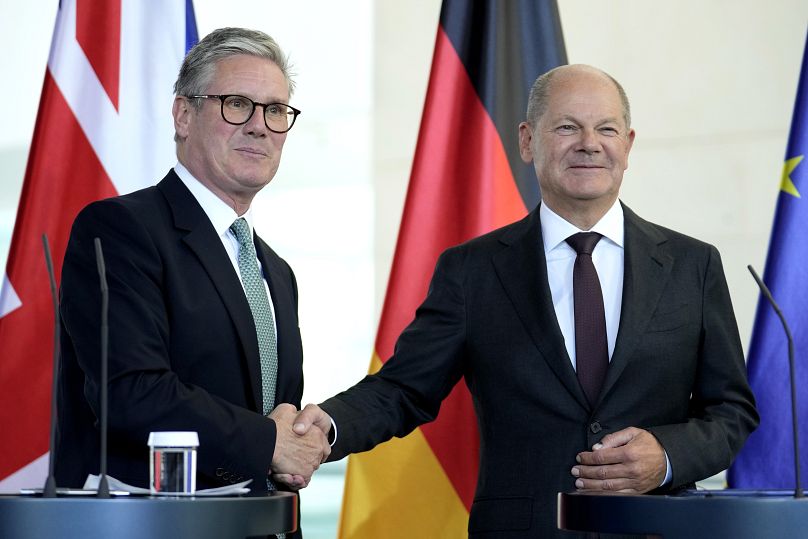The trip is part of the UK prime minister's two-day talks in mainland Europe aimed at "resetting" the country's post-Brexit relationship with the EU and the rest of the continent.
Keir Starmer met with French President Emmanuel Macron in Paris on Thursday as part of his continued strategy to build bridges with European leaders following years of frosty relations brought by the previous Conservative government.
 ADVERTISEMENT
ADVERTISEMENT
 ADVERTISEMENT
ADVERTISEMENT
The most fraught topic on the table was the issue of migrants crossing the Channel to the UK by small boats from France.
Although both countries have worked together in the past to curb illegal migrant arrivals, the issue was the first one singled out by the UK prime minister in a statement released ahead of his France visit.
The number of migrants crossing to the UK via small boats reached a record high in the first six months of 2024, according to the UK Home Office. As of 19 August, 19,294 people had crossed the Channel in 2024.
Starmer's trip to Paris comes right after he visited Chancellor Olaf Scholz in Germany, where he also announced plans to draft a joint action plan to fight people smugglers and to tackle illegal migration.
Both Macron and Starmer also agreed to deepen bilateral relations, particularly in the fields of defence, security, and energy, without providing more detail.
The leaders finally discussed geopolitical matters such as Russia's full-scale invasion of Ukraine and the Israel-Hamas conflict.
"They agreed that it was essential to continue supporting the Ukrainians for as long as necessary to guarantee the defence and security of the country and the continent as a whole," the Elysée Palace said in a statement to Euronews.
When it comes to the Middle East, Macron and Starmer "reiterated their call for an immediate ceasefire, which would allow the hostages to be freed and humanitarian aid to enter Gaza," the statement said.
Starmer took office in early July after his Labour Party won the UK general election by a landslide.
Four years after the country officially left the EU, Starmer said he wanted to rebuild ties strained by years of ill-tempered wrangling over Brexit terms.
"I'm absolutely clear that we do want a reset with Europe, a reset with the EU," Starmer said in Berlin.
However, Starmer has made it clear that establishing closer ties with Europe does not mean reversing Brexit.
He also said the UK does not plan to join the EU's youth mobility scheme, which would give young people in the EU the right to live and work in the UK and vice versa.











